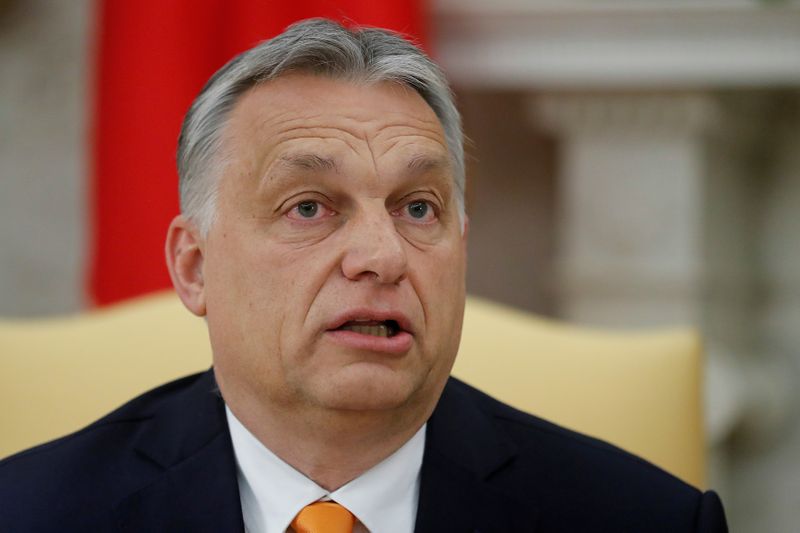BUDAPEST (Reuters) – A dispute over the European Union’s recovery fund and budget will eventually be resolved, Hungary’s prime minister said on Friday, as a senior official in Warsaw said Poland had the right to demand a “new compromise” over the deal.
The nationalist governments of Hungary and Poland have refused to back the bloc’s financial plan, even though they are beneficiaries, because the money is conditional on respecting the rule of law.
“The talks should be continued and in the end we will come to an agreement, that’s how this usually goes,” Hungarian Prime Minister Viktor Orban told state radio.
He said there could be several options for resolving the deadlock “that are acceptable to Hungary and Poland … where legal aspects decide and not a political majority”. He gave no details.
The Polish and Hungarian veto is likely to delay hundreds of billions of euros in EU funds at a time when the 27-nation bloc is grappling with a second wave of the coronavirus, with its economy likely to shrink in the last three months of the year in a double-dip recession.
The two countries are under EU investigation for undermining the independence of courts, media and non-governmental organisations, and they risk losing access to tens of billions of euros.
Krzysztof Szczerski, the Polish president’s chief of staff, said his country had the right within the European policy framework to refuse to agree to “what is wrong”.
“We have the right to seek and demand a new compromise,” he told public broadcaster TVP Info.
Orban, whose government issued a eurobond this month, said that irrespective of the current political debates over EU funds, “all the development projects Hungary planned for the next 10 years would be carried out.”
Hungary’s economy – which has been to a great extent dependent on EU funds – is in a deeper-than-expected recession due to the coronavirus and the rebound next year will also be slower than previously anticipated, according to analysts and the government’s own forecast.
(additional reporting by Pawel Florkiewicz; Editing by Christian Schmollinger and John Stonestreet)




















